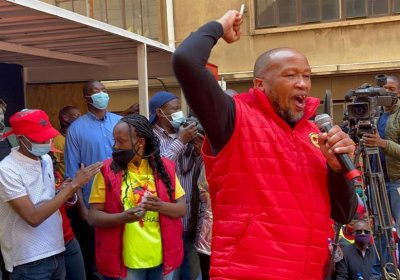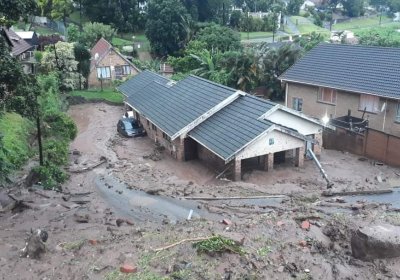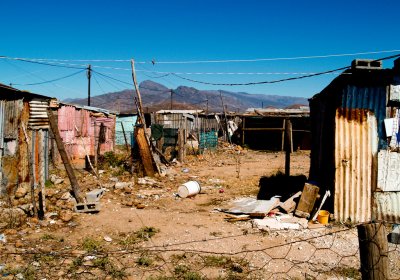The answers for South Africa will have to come from struggle, National Union of Metalworkers of South Africa (NUMSA) leader Irvin Jim tells Vijay Prashad and Zoe Alexandra.
African National Congress (ANC)
Patrick Bond and Mary Galvin report on the recent catastrophic floods in Durban, which have exposed the Cyril Ramaphosa government’s criminal negligence and failure to take action on climate change.
Veteran South Africa anti-Apartheid activist Sidney Luckett spoke to Green Left's Peter Boyle about the important link between South Africa's iconic freedom fighter Nelson Mandela and Kurdish leader Abdullah Ocalan.
New South African President Cyril Ramaphosa made headlines when the ANC leader backed legal changes that could allow land reform to redistribute land from traditionally powerful white owners to the Black majority.
But this populist posture aside, the new administration is seeking to deepen pro-corporate neoliberalism and austerity.
The rise of Cyril Ramaphosa, from the ruling African National Congress (ANC), to South African president following a February 15 vote by the National Assembly was largely greeted with sighs of relief and expressions of joy.
However, jubilation over Ramaphosa’s election obscures a murky past and stormy future.
South African President Jacob Zuma’s recent cabinet reshuffle is nothing more and nothing less than the latest instalment of a long-running story of the capture of the African National Congress (ANC) and the post-1994 democratic state it has politically run.
It is but a consequence of a political, economic and social crisis that has been forged and fed by the ANC – and its Alliance partners, the South African Communist Party (SACP) and the Congress of South African Trade Unions (Cosatu) – as a whole, in conjunction with capital.
The African National Congress (ANC), which led the struggle against Apartheid, has become the key political vehicle, both in party and state form, of corporate capital.
This applies to all capital — domestic and international, black and white, local and national, and includes a range of different “fractions” of capital.
Over the past two decades, it has been the fight on and over this terrain — with some for, some against, some in the middle — that has defined the ANC’s journey since the end of Apartheid in 1994.







